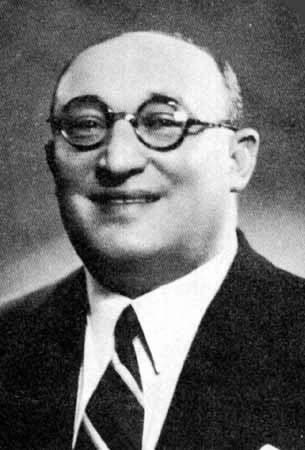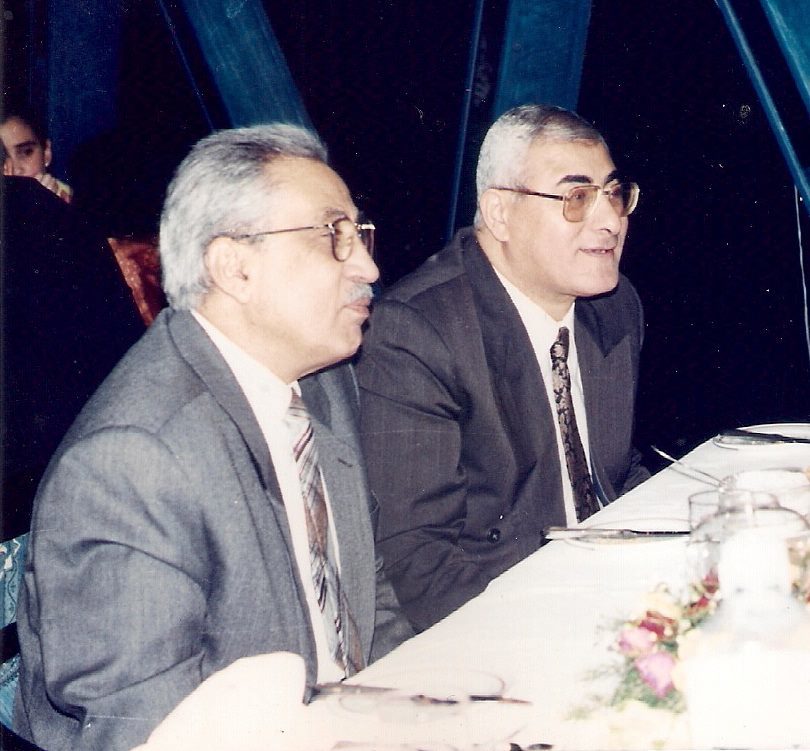|
Mahmoud Mekki
Mahmoud Mekki ( ar, محمود محمود أحمد مكي; born 1954) is an Egyptian politician who served as the vice president of Egypt from August 2012 to December 2012. He was appointed by President Mohamed Morsi following the 2011 Egyptian revolution, 2011 revolution and the 2012 Egyptian presidential election, 2012 presidential election on 12 August 2012. He was Egypt's first vice president from a civilian background rather than a military one. He resigned from his post on 22 December 2012. Early life and education Mekki was born in Alexandria in 1954. After graduating from police college in Cairo he worked as a police officer in Central Security Forces. He then got a bachelor's degree in law and worked in general prosecution ( ar, النيابة العامة). A few years later, Mekki became a judge. Working his way up the judicial ladder, he was eventually appointed vice-president of the Court of Cassation (Arabic: محكمه النقض)., which represents the final stage ... [...More Info...] [...Related Items...] OR: [Wikipedia] [Google] [Baidu] |
Vice President Of Egypt
The vice-president of the Arab Republic of Egypt is a senior official within the Egyptian government. History of the office Before 1971 In 1962, President Gamal Abdel Nasser instituted collective leadership in Egypt, separating the post of Prime Minister from that of President and establishing a presidential council to deal with all issues formerly considered presidential prerogatives. Five of the council's 11 members were Vice-Presidents of Egypt. Under the 1971 Constitution According to article 139 of the 1971 Constitution, the President "may appoint one or more Vice-Presidents define their jurisdiction and relieve them of their posts. The rules relating to the calling to account of the President of the Republic shall be applicable to the Vice-Presidents." The Constitution gave broad authority to the President to determine the number of Vice-Presidents, as well as their appointment, dismissal and duties of office. After the 2011 amendments, the president should appointed a ... [...More Info...] [...Related Items...] OR: [Wikipedia] [Google] [Baidu] |
Hossam Ghariani
Hossam El-Gheriany (born 1941) is an Egyptian judge. Winning recognition as a champion of judicial independence in the regime of President Mubarak, he became head of the Supreme Judicial Council and the Court of Cassation. Today he also heads the Constituent Assembly of Egypt and is president of the National Council for Human Rights. Life Born in Sharqiya Governorate in the Nile Delta, Hossam El-Gheriany gained a BA in law from the University of Alexandria in 1962. He worked for the public prosecutor's office for twelve years, witnessing Nasser's 1969 attack on the judiciary. He became a judge in 1974. Gaining varied experience as a judge - including two years in Libya and some time in the United Arab Emirates - he became a chancellor in Egypt's Court of Cassation in 1986.Ahmed Zaki OsmanIn Egypt’s troubled judiciary, Gheriany stands as a savior ''Egypt Independent'', 24 March 2012. In 1986 Hossam El-Gheriany, Yahya al-Refai and Ahmed Mekky organized a conference, attended by ... [...More Info...] [...Related Items...] OR: [Wikipedia] [Google] [Baidu] |
Egyptian Diplomats
Egyptian describes something of, from, or related to Egypt. Egyptian or Egyptians may refer to: Nations and ethnic groups * Egyptians, a national group in North Africa ** Egyptian culture, a complex and stable culture with thousands of years of recorded history ** Egyptian cuisine, the local culinary traditions of Egypt * Egypt, the modern country in northeastern Africa ** Egyptian Arabic, the language spoken in contemporary Egypt ** A citizen of Egypt; see Demographics of Egypt * Ancient Egypt, a civilization from c. 3200 BC to 343 BC ** Ancient Egyptians, ethnic people of ancient Egypt ** Ancient Egyptian architecture, the architectural structure style ** Ancient Egyptian cuisine, the cuisine of ancient Egypt ** Egyptian language, the oldest known language of Egypt and a branch of the Afroasiatic language family * Copts, the ethnic Egyptian Christian minority ** Coptic language or Coptic Egyptian, the latest stage of the Egyptian language, spoken in Egypt until the 17th century, ... [...More Info...] [...Related Items...] OR: [Wikipedia] [Google] [Baidu] |
Politicians From Alexandria
A politician is a person active in party politics, or a person holding or seeking an elected office in government. Politicians propose, support, reject and create laws that govern the land and by an extension of its people. Broadly speaking, a politician can be anyone who seeks to achieve political power in a government. Identity Politicians are people who are politically active, especially in party politics. Political positions range from local governments to state governments to federal governments to international governments. All ''government leaders'' are considered politicians. Media and rhetoric Politicians are known for their rhetoric, as in speeches or campaign advertisements. They are especially known for using common themes that allow them to develop their political positions in terms familiar to the voters. Politicians of necessity become expert users of the media. Politicians in the 19th century made heavy use of newspapers, magazines, and pamphlets, as well a ... [...More Info...] [...Related Items...] OR: [Wikipedia] [Google] [Baidu] |
Vice-presidents Of Egypt
A vice president, also director in British English, is an officer in government or business who is below the president (chief executive officer) in rank. It can also refer to executive vice presidents, signifying that the vice president is on the executive branch of the government, university or company. The name comes from the Latin term ''vice'' meaning "in place of" and typically serves as ''pro tempore'' (Latin: ’for the time being’) to the president. In some countries, the vice president is called the ''deputy president''. In everyday speech, the abbreviation ''VP'' is used. In government In government, a vice president is a person whose primary responsibility is to act in place of the president on the event of the president's death, resignation or incapacity. Vice presidents are either elected jointly with the president as their running mate, or more rarely, appointed independently after the president's election. Most governments with vice presidents have one person ... [...More Info...] [...Related Items...] OR: [Wikipedia] [Google] [Baidu] |
Living People
Related categories * :Year of birth missing (living people) / :Year of birth unknown * :Date of birth missing (living people) / :Date of birth unknown * :Place of birth missing (living people) / :Place of birth unknown * :Year of death missing / :Year of death unknown * :Date of death missing / :Date of death unknown * :Place of death missing / :Place of death unknown * :Missing middle or first names See also * :Dead people * :Template:L, which generates this category or death years, and birth year and sort keys. : {{DEFAULTSORT:Living people 21st-century people People by status ... [...More Info...] [...Related Items...] OR: [Wikipedia] [Google] [Baidu] |
Vice-President Of Egypt
The vice-president of the Arab Republic of Egypt is a senior official within the Egyptian government. History of the office Before 1971 In 1962, President Gamal Abdel Nasser instituted collective leadership in Egypt, separating the post of Prime Minister from that of President and establishing a presidential council to deal with all issues formerly considered presidential prerogatives. Five of the council's 11 members were Vice-Presidents of Egypt. Under the 1971 Constitution According to article 139 of the 1971 Constitution, the President "may appoint one or more Vice-Presidents define their jurisdiction and relieve them of their posts. The rules relating to the calling to account of the President of the Republic shall be applicable to the Vice-Presidents." The Constitution gave broad authority to the President to determine the number of Vice-Presidents, as well as their appointment, dismissal and duties of office. After the 2011 amendments, the president should appointed a ... [...More Info...] [...Related Items...] OR: [Wikipedia] [Google] [Baidu] |
Vatican City
Vatican City (), officially the Vatican City State ( it, Stato della Città del Vaticano; la, Status Civitatis Vaticanae),—' * german: Vatikanstadt, cf. '—' (in Austria: ') * pl, Miasto Watykańskie, cf. '—' * pt, Cidade do Vaticano—' * es, Ciudad del Vaticano—' is an independent city-state, microstate and enclave and exclave, enclave within Rome, Italy. Also known as The Vatican, the state became independent from Italy in 1929 with the Lateran Treaty, and it is a distinct territory under "full ownership, exclusive dominion, and sovereign authority and jurisdiction" of the Holy See, itself a Sovereignty, sovereign entity of international law, which maintains the city state's Temporal power of the Holy See, temporal, Foreign relations of the Holy See, diplomatic, and spiritual Legal status of the Holy See, independence. With an area of and a 2019 population of about 453, it is the smallest state in the world both by area and List of countries and dependencies ... [...More Info...] [...Related Items...] OR: [Wikipedia] [Google] [Baidu] |
Adly Mansour
Adly Mahmoud Mansour ( ar, عدلى محمود منصور ; born 23 December 1945) is an Egyptian judge and politician who served as the president (or chief justice) of the Supreme Constitutional Court of Egypt. He also served as interim president of Egypt from 4 July 2013 to 8 June 2014 following the 2013 Egyptian coup d'état by the military which deposed President Mohamed Morsi. Several secular and religious figures, such as the Grand Imam of al-Azhar ( Ahmed el-Tayeb), the Coptic Pope (Tawadros II), and Mohamed ElBaradei supported the coup against President Morsi and the military appointed Mansour interim-president until an election could take place. Morsi refused to acknowledge his removal as valid and continued to maintain that only he could be considered the legitimate President of Egypt. Mansour was sworn into office in front of the Supreme Constitutional Court on 4 July 2013. Early life and education Mansour was born in Cairo. He graduated from Cairo University La ... [...More Info...] [...Related Items...] OR: [Wikipedia] [Google] [Baidu] |
2013 Egyptian Coup D'état
The 2013 Egyptian coup d'etat took place on 3 July 2013. Egyptian army chief General Abdel Fattah al-Sisi led a coalition to remove the democratically elected President of Egypt, Mohamed Morsi, from power and suspended the Egyptian constitution of 2012. The move came after the military's ultimatum for the government to "resolve its differences" with protesters during widespread national protests. The military arrested Morsi and Muslim Brotherhood leaders, and declared Chief Justice of the Supreme Constitutional Court Adly Mansour as the interim president of Egypt. The announcement was followed by demonstrations and clashes between supporters and opponents of the move throughout Egypt. There were mixed international reactions to the events. Most Arab leaders were generally supportive or neutral, with the exception of Qatar and Tunisia who strongly condemned the military's actions. The US avoided describing the action as a coup. Other states either condemned or expressed co ... [...More Info...] [...Related Items...] OR: [Wikipedia] [Google] [Baidu] |



